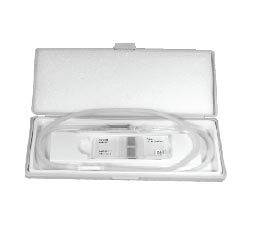How is Manual cell counting done with the help of Hemocytometers?
Physical cell totaling remains the normal technique of gaging cell absorption and feasibility in many laboratories, but computerized schemes are quickly obscuring the competencies of Hemocytometers found with Hemocytometers suppliers. Originally resultant as a technique of obtaining a total sum for blood cells in suspension, the submissions of physical cells totaling with Hemocytometers have lengthened meaningfully since its initiation decades ago. Operators now trust Hemocytometers for examination of a varied variety of example kinds, including sperm, urine, phytoplankton, and more. The mounting amount of submissions necessitating precise cell counts and the snowballing output stresses of labs has underlined the restrictions of physical cell totaling and highlighted the need for a dependable computerized substitute.
Functioning
Principles of Manual Cell Counting
The hemocytometer is
conversant to most workroom specialists, but it is valuable recapitulating the
basic codes of physical cell totaling before confronting its intrinsic tests. A
hemocytometer is a distinctive example slide categorized by a quadrangular dent
that is imprinted with a web encompassed of nine cubes, each with an area of 1
mm2. This frame is separated into a cross-section that interconnects across the
principal tetragonal, producing a section of 0.0025 mm2. A shelter glass is
located on top of the example and held in abode at a pre-defined stature
(typically around 0.1 mm). Given these prudently measured scopes, it is
conceivable to perceive a distinct area of the totaling network and distinguish
– with a rational amount of consistency – the number of cells in a specific
size of mix.
Key
Tests of Physical Cell Totaling with Hemocytometers
Though Physical Cell
Totaling is low-priced, it is beleaguered by poor repeatability due to conjoint
cell totaling mistakes. These can mainly be credited to one of three
all-embracing errors:
1. Imprecision due
to mortal awareness
2. Pipetting
mistakes
3. Poor/improper
sample groundwork
The first is the
most universal test and stiffest to offset when it comes to Physical Cell
Totaling. Medium- to high-throughput cell totaling expending a hemocytometer is
time-consuming and arduous. As physical cell totals are reliant on human
imagining and understanding, these influences can have a noteworthy impression
on the class of outcomes and examination repeatability. Differentiating
non-viable and feasible cells from cell wreckages, for instance, depends on
singular know-how and personal brink standards. This individual technique of
cell totaling also makes it problematic to institute a set of consistent
etiquettes that all operators can monitor within and amongst labs.
Pipetting the
improper capacity of example material can also disturb fallouts by snowballing
the stature of the example chamber. As all fallouts are founded on a projected
volume, pipetting a superior or smaller capacity of example material can
consequence in noteworthy cell totaling mistakes. Similarly, poor sample
groundwork can outcome in several issues downstream. Choosing the suitable
assay and standardizing the sample appropriately is acute for attaining a test
sample that is insightful of the basis material. A deficiency of consistent
procedures and a dependence on singular verdict can obscure this test further.
Reimbursements
of Automatic Cell Totaling
The competencies of
computerized cell stands have enhanced intensely in recent years, providing an
economical substitute to hemocytometers supplied by Haemocytometer Suppliers and
other Physical Cell Totaling transparencies. Though the direct speculation is
greater, programmed cell totaling systems can hasten the analysis approaches
and meaningfully advance the excellence of your outcomes.
If you are looking for Haemocytometer Dealers, please
log onto Ozahub.




Comments
Post a Comment